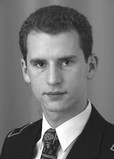Humanistic model of organization of recreational physical education practices
Фотографии:
ˑ:
PhD, Associate Professor I.A. Panchenko1
PhD, Associate Professor M.A. Elmurzaev1
I.V. Bobrov1
1Saint-Petersburg Mining University, Saint-Petersburg
Objective of the study was to scientifically substantiate the humanistic approaches to the recreational physical education practices in the educational process.
Methods and structure of the study. During the study we applied a methodological approach to the principles of humanism within the process of education and upbringing of children engaged in the recreational physical education practices.
Results of the study and conclusions. The authors highlight the principles underlying the construction of a humanistic model of physical recreation. The principle of fixation on individual characteristics of a person is associated with the process of training and education based on the teacher’s accounting for the individual characteristics of those involved. The principle of humanity is a necessary structural element of the physical development process; it determines its essence, content, laws and patterns of functioning. In view of these humanistic principles, the humanistic model of physical development should be based on three levels of human mental organization, three types of traits: inborn, individual, and personality.
Consequently, the humanistic approach should serve as one of the methodological principles of construction of the theory of physical development; it cannot be excluded from the range of problems of its study. The proposed humanistic model of physical development is descriptive and is based on the identification of its specific features.
Keywords: recreational physical education practices, humanistic model of self-development.
References
- Dementiev K.N., Lobanov Yu.Ya., Ustinova O.N. Vybor strategii povedeniya v konfliktnoy situatsii v protsesse sotsializatsii devushek-kursantov v voenno-uchebnom zavedenii [Choice of strategy for behavior in conflict situation in socialization process of female cadets in military educational institution]. Uchenye zapiski universiteta im. P.F. Lesgafta. 2017. no.6 (148). pp. 259-263.
- Kalmykov S.G., Kalmykova N.E. Nositeli idei dobrovolchestva [Bearers of volunteering idea]. Sportivno-massovaya rabota i studencheskiy sport: vozmozhnosti i perspektivy. [Mass sports and student sports: opportunities and prospects]. Proc. Intern. res.-practical conf.. SPb GUPTD publ., 2015. pp. 66-70.
- Kostyuchenko V.F., Rudenko G.V., Dubrovskaya Yu.A. Formirovanie fizicheskoy kultury grazhdan v kontekste strategii razvitiya fizicheskoy kultury i sporta v RF [Mass physical culture encouragement policies in context of national physical education and sports sector development strategy]. Teoriya i praktika fiz. kultury. 2019. no. 3. pp. 35-38.
- Lubysheva L.I. Sotsiologiya fizicheskoy kultury i sporta [Sociology of Physical Culture and Sports]. Study guide. Moscow: Akademiya publ., 2001, 240 p.
- Pogodin S.N., Piskun O.E., Samorukov V.I. Sport i politika v aspekte istoricheskogo analiza [Sports and politics: historical analysis]. Teoriya i praktika fiz. kultury. 2018. no. 4. pp. 96-98.
- Pristav O.V., Dementiev K.N., Zashchirinskaya O.V. Vozmozhnosti ispolzovaniya fitnes-tekhnologiy v sisteme spetsialnogo i inklyuzivnogo obrazovaniya detey [Special and inclusive education systems for disabled children: health technology application potential]. Teoriya i praktika fiz. kultury. 2016. no. 7. pp. 41-43.
- Elmurzaev M.A., Ponomarev G.N. Sotsiokulturny potentsial fizicheskoy rekreatsii [Sociocultural Potential of Physical Recreation]. Teoriya i praktika fiz. kultury. 2014.no. 2. pp. 52-54.



 Журнал "THEORY AND PRACTICE
Журнал "THEORY AND PRACTICE